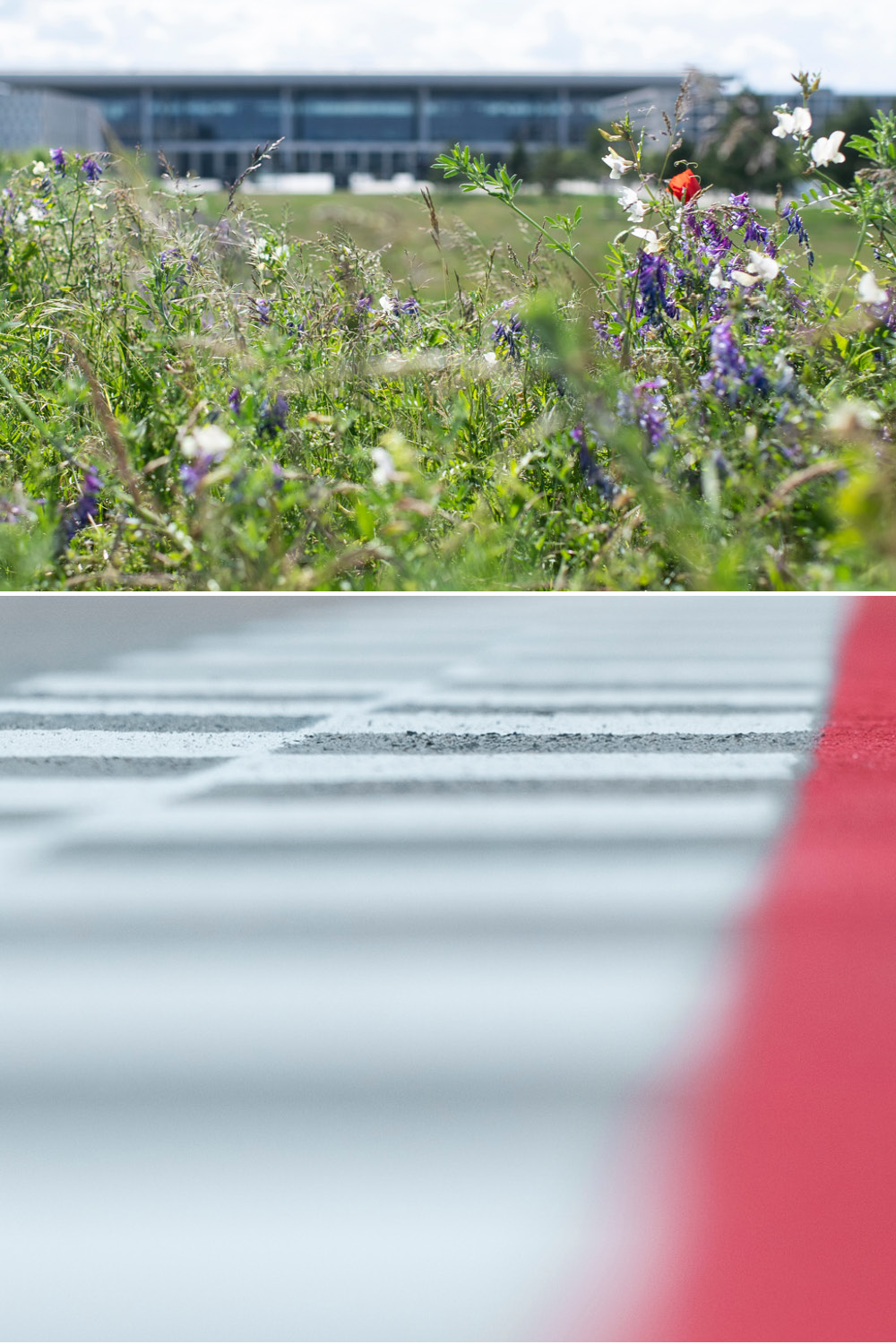Umweltbewusstes Handeln
am Flughafen und im Umland
Die Flughafengesellschaft (FBB) setzt auf Nachhaltigkeit und verfolgt das Ziel, den Flughafen Berlin Brandenburg möglichst energieeffizient, ressourcen- und umweltschonend zu betreiben. Davon wollen wir auch unsere Geschäftspartner, Dienstleister und Reisenden überzeugen. Und auch wenn die Themen Flughafen und Umwelt zunächst nach einem Widerspruch klingen, ergeben sich daraus viele Möglichkeiten und Aufgaben zum Schutz der Umwelt. Im Sinne eines ökologisch verantwortungsbewussten Handelns, entstehen für die FBB verschiedene Handlungsfelder. Um Umweltthemen weiter zu etablieren, baut die FBB derzeit ein Umweltmanagementsystem auf und folgt dabei der Geschäftsführungsrichtlinie zur Umweltpolitik.

